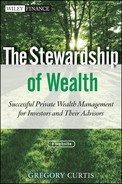Chapter 2
Creative Capital
It is as impossible for a society to be formed and lasting without self-interest as it would be to produce children without carnal desire or to think of eating without appetite.
—Voltaire, On the Pensées of Pascal (1734)
It is not enough that an economic system be successful economically. American-style capitalism has astonished the world, to be sure. But if we really want to observe a powerful economy in action, we need only look at the Soviet Union between 1917 and 1935. In barely a generation, Soviet-style communism transformed a backward, peasant, agrarian society into the second-largest economy in the world, an economic triumph that seems unlikely to have been surpassed by any nation in history.
The trouble with the Soviet system was that it was not a morally legitimate form of social organization. It could be sustained only by the extravagant use of state power to maintain an entrenched elite. Tens of millions of Soviet citizens would die to accomplish the remarkable economic outcomes produced by the USSR, the Soviet natural environment would be destroyed, human freedoms would be eliminated, and the moral nature of Soviet citizens would rot. Held in check by American military might for seven decades, the Soviet Union would eventually implode.
The lesson of the USSR, and of the decline of many other once-powerful civilizations, is that, ultimately, it is the moral basis of a society that matters. Remarkable as the accomplishments of the American free market might be, those accomplishments would not have persisted unless Americans in particular, and other citizens of the world in general, perceived the American system to be operating on a legitimate ethical basis. Human beings are both economic and moral creatures—that is, we are both selfish and selfless—and the organization of successful societies must recognize and nourish both aspects of our being. Thus, to fully understand the role of private capital in America's success, it is necessary to take a small detour and (briefly!) examine the moral dimension of capitalism.
